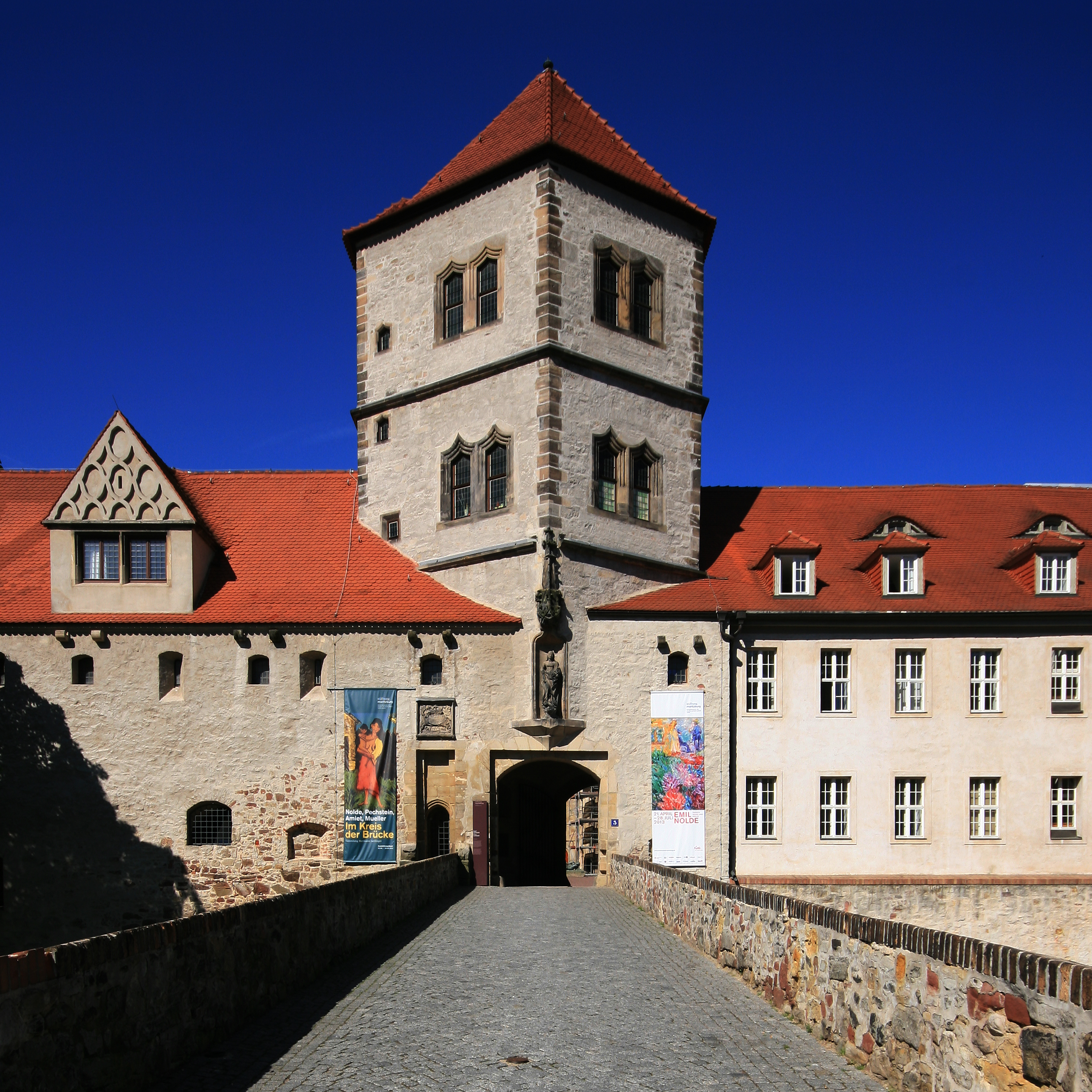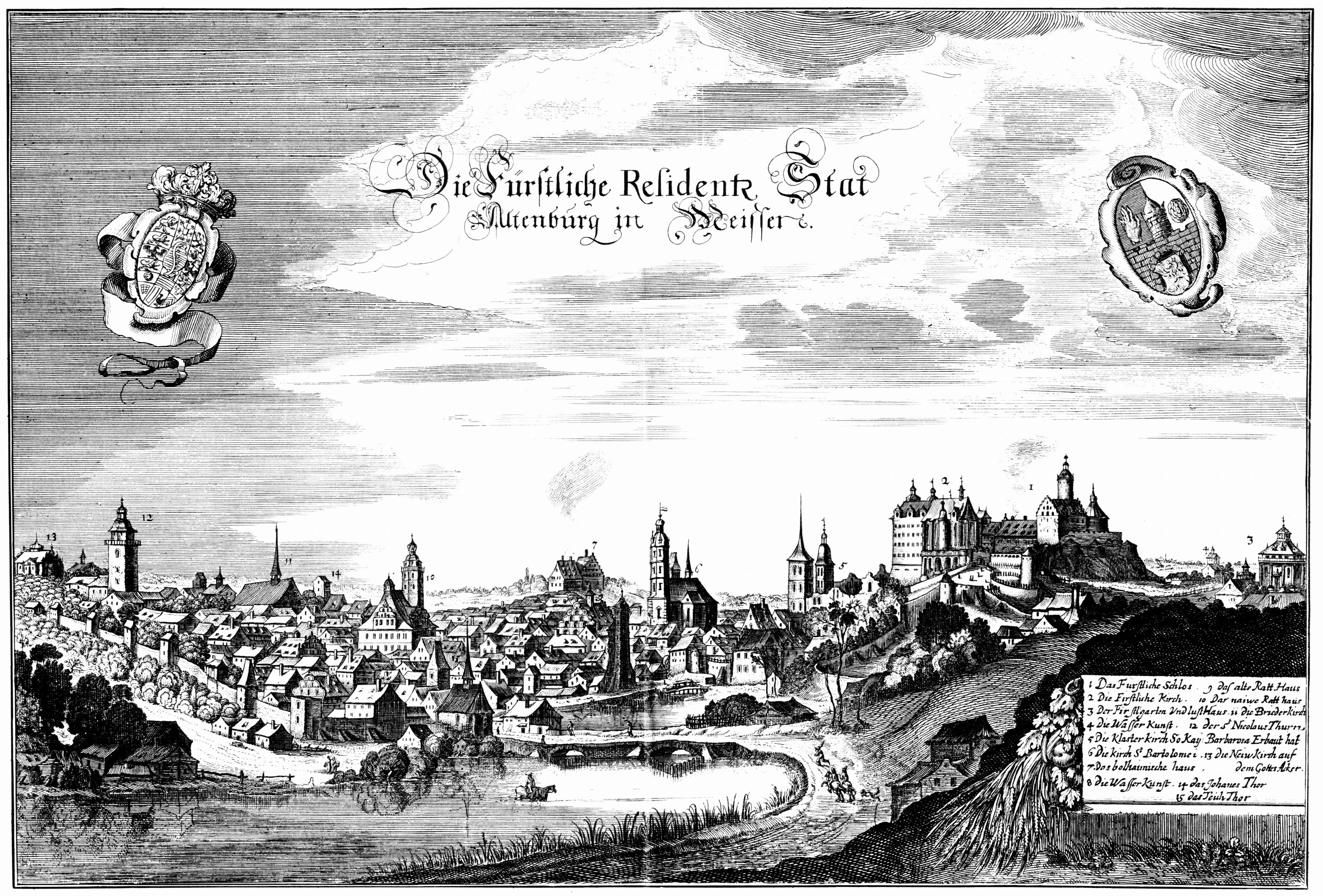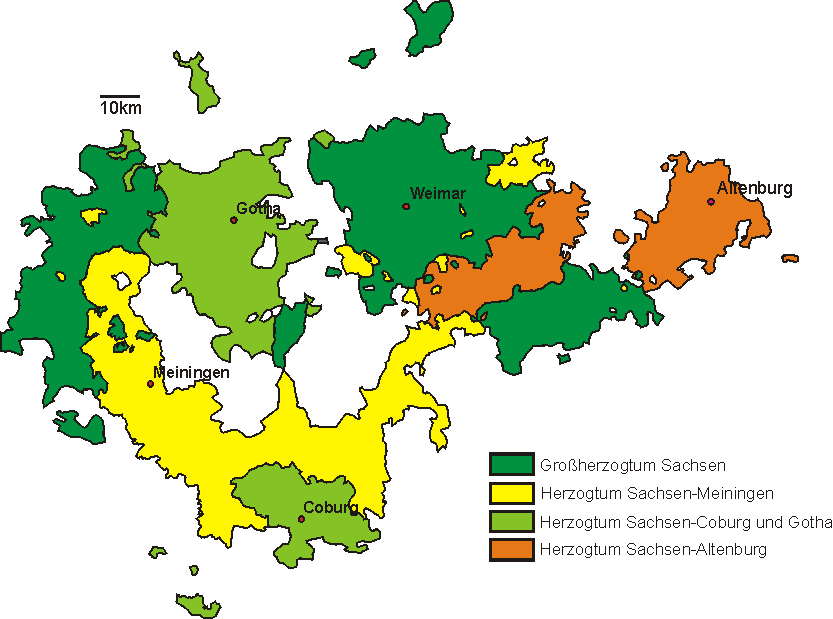|
Sophie Elisabeth Of Brandenburg
Sophie Elisabeth of Brandenburg (1 February 1616 at Moritzburg Castle in Halle – 16 March 1650 at Altenburg Castle) was a Princess of Brandenburg by birth and by marriage Duchess of Saxe-Altenburg. Life Sophie Elizabeth was the only child of Margrave Christian William of Brandenburg (1587-1665) from his first marriage with Dorothea (1596-1643), the daughter of the Duke Henry Julius of Brunswick-Wolfenbüttel. The princess was born at Moritzburg Castle in Halle, where her father resided as administrator of the Archbishopric of Magdeburg. She married on 18 September 1638 in Altenburg Altenburg () is a city in Thuringia, Germany, located south of Leipzig, west of Dresden and east of Erfurt. It is the capital of the Altenburger Land district and part of a polycentric old-industrial textile and metal production region betw ... to Duke Frederick William II of Saxe-Altenburg (1603-1669). The marriage was described as a happy one; however, it remained childless. She ... [...More Info...] [...Related Items...] OR: [Wikipedia] [Google] [Baidu] |
House Of Hohenzollern
The House of Hohenzollern (, also , german: Haus Hohenzollern, , ro, Casa de Hohenzollern) is a German royal (and from 1871 to 1918, imperial) dynasty whose members were variously princes, Prince-elector, electors, kings and emperors of Hohenzollern Castle, Hohenzollern, Margraviate of Brandenburg, Brandenburg, Kingdom of Prussia, Prussia, the German Empire, and Kingdom of Romania, Romania. The family came from the area around the town of Hechingen in Swabia during the late 11th century and took their name from Hohenzollern Castle. The first ancestors of the Hohenzollerns were mentioned in 1061. The Hohenzollern family split into two branches, the Catholic Church, Catholic Swabian branch and the Protestantism, Protestant Burgraviate of Nuremberg#List of burgraves, Franconian branch,''Genealogisches Handbuch des Adels, Fürstliche Häuser'' XIX. "Haus Hohenzollern". C.A. Starke Verlag, 2011, pp. 30–33. . which ruled the Burgraviate of Nuremberg and later became the Brandenburg-P ... [...More Info...] [...Related Items...] OR: [Wikipedia] [Google] [Baidu] |
Christian William Of Brandenburg
Christian Wilhelm of Brandenburg (28 August 1587 in Wolmirstedt – 1 January 1665 in Zinna Abbey) was a titular Margrave of Brandenburg, and from 1598 to 1631 Archbishop of Magdeburg. Life Christian Wilhelm was a son of Elector Joachim Frederick of Brandenburg (1546-1608) from his first marriage with Catherine (1549-1602), a daughter of Margrave John of Brandenburg-Küstrin (1513-1571). He was elected as Archbishop of Magdeburg in 1598. However, the city of Magdeburg did not recognize him as Prince-Bishop, because his election had not been confirmed by the emperor. When he married in 1614, he assumed the title of Lutheran administrator on. That same year, he also became coadjutor of Halberstadt. In 1624, he became administrator of Halberstadt. During the Thirty Years' War, he entered into an alliance with Denmark. In 1626, he led an army from Lower Saxony into the Battle of Dessau Bridge. After Wallenstein won this battle, he fled abroad. In 1629, he fled to the court ... [...More Info...] [...Related Items...] OR: [Wikipedia] [Google] [Baidu] |
Dorothea Of Brunswick-Wolfenbüttel
Dorothea (also spelled Dorothée, Dorotea or other variants) is a female given name from Greek (Dōrothéa) meaning "God's Gift". It may refer to: People * Dorothea Binz (1920–1947), German concentration camp officer executed for war crimes * Dorothea Brooking (1916–1999), British children's television producer and director * Dorothea Dix (1802–1887), American social activist * Dorothea Douglass Lambert Chambers (1878–1960), English tennis player * Dorothea Dunckel (1799–1878), Swedish playwright * Dorothea Erxleben (1715–1762), first woman doctor in Germany * Dorothea Fairbridge (1860–1931), South African novelist * Dorothea Gerard (1855–1915), Scottish novelist * Dorothea Hoffman (d. 1710), Swedish hat maker * Dorothea Jordan (1761–1816), Irish actress and mistress of the future King William IV of the United Kingdom * Dorothea Kalpakidou (born 1983), Greek discus thrower * Dorothea Krag (1675–1754), Danish postmaster * Dorothea Lange (1895–1965), Ame ... [...More Info...] [...Related Items...] OR: [Wikipedia] [Google] [Baidu] |
Frederick William II, Duke Of Saxe-Altenburg
Friedrich Wilhelm II (12 February 1603, in Weimar – 22 April 1669, in Altenburg), was a duke of Saxe-Altenburg. He was the youngest son of Friedrich Wilhelm I, Duke of Saxe-Weimar, and Anna Maria of the Palatinate-Neuburg, his second wife. He was born eight months after the death of his father, on 7 July 1602. Shortly after his birth, Friedrich Wilhelm II and his older brothers inherited Saxe-Altenburg as co-rulers under the guardianship of the Electors of Saxony Christian II and John George I until 1618, when his older brother John Philip assumed the government of the duchy and the guardianship of his younger siblings. By 1632, two of his three brothers were deceased. Friedrich Wilhelm II and his older brother John Philip began a joint government; but, in fact, John Philip was the real and only ruler of the duchy of Saxe-Altenburg. Friedrich Wilhelm II was only a nominal ruler until the death of John Philip (1639), when he began his personal reign over Altenburg. At Alt ... [...More Info...] [...Related Items...] OR: [Wikipedia] [Google] [Baidu] |
Moritzburg (Halle)
The Moritzburg is a fortified castle in Halle (Saale), Germany. The cornerstone of what would later become the residence of the Archbishops of Magdeburg was laid in 1484; the castle was built in the style of the Early Renaissance. Since the end of the 19th century it has housed an arts museum which is recognised as being of national importance. History Origins The history of the Moritzburg is closely connected to that of Halle. In 968, when the Archbishopric of Magdeburg was established by Otto I, Holy Roman Emperor, he granted the archbishop his Giebichenstein Castle near Halle. Already in the 13th century powerful aristocrats could, by buying privileges, reduce the influence of the sovereign, the Archbishop of Magdeburg, on the town. Thus, Halle had practically reached a state of political autonomy in 1263. The same happened with Magdeburg and when the archbishops finally left Magdeburg, after a series of conflicts with the ever more powerful city council, Giebichenste ... [...More Info...] [...Related Items...] OR: [Wikipedia] [Google] [Baidu] |
Halle, Saxony-Anhalt
Halle (Saale), or simply Halle (; from the 15th to the 17th century: ''Hall in Sachsen''; until the beginning of the 20th century: ''Halle an der Saale'' ; from 1965 to 1995: ''Halle/Saale'') is the largest city of the German state of Saxony-Anhalt, the fifth most populous city in the area of former East Germany after (East) Berlin, Leipzig, Dresden and Chemnitz, as well as the 31st largest city of Germany, and with around 239,000 inhabitants, it is slightly more populous than the state capital of Magdeburg. Together with Leipzig, the largest city of Saxony, Halle forms the polycentric Leipzig-Halle conurbation. Between the two cities, in Schkeuditz, lies Leipzig/Halle International Airport. The Leipzig-Halle conurbation is at the heart of the larger Central German Metropolitan Region. Halle lies in the south of Saxony-Anhalt, in the Leipzig Bay, the southernmost part of the North German Plain, on the River Saale (a tributary of the Elbe), which is the third longest river flo ... [...More Info...] [...Related Items...] OR: [Wikipedia] [Google] [Baidu] |
Altenburg
Altenburg () is a city in Thuringia, Germany, located south of Leipzig, west of Dresden and east of Erfurt. It is the capital of the Altenburger Land district and part of a polycentric old-industrial textile and metal production region between Gera, Zwickau and Chemnitz with more than 1 million inhabitants, while the city itself has a population of 33,000. Today, the city and its rural county is part of the Central German Metropolitan Region. Altenburg was first mentioned in 976 and later became one of the first German cities within former Slavic area, east of the Saale river (as part of the medieval Ostsiedlung movement). The emperor Frederick I, Holy Roman Emperor, Frederick Barbarossa visited Altenburg several times between 1165 and 1188, hence the town is named a Barbarossa city, Barbarossa town today. Since the 17th century, Altenburg was the residence of different House of Wettin, Ernestine duchies, of whom the Duchy of Saxe-Altenburg, Saxe-Altenburg persisted until th ... [...More Info...] [...Related Items...] OR: [Wikipedia] [Google] [Baidu] |
Electorate Of Brandenburg
Brandenburg (; nds, Brannenborg; dsb, Bramborska ) is a state in the northeast of Germany bordering the states of Mecklenburg-Vorpommern, Lower Saxony, Saxony-Anhalt, and Saxony, as well as the country of Poland. With an area of 29,480 square kilometres (11,382 square miles) and a population of 2.5 million residents, it is the fifth-largest German state by area and the tenth-most populous. Potsdam is the state capital and largest city, and other major towns are Cottbus, Brandenburg an der Havel and Frankfurt (Oder). Brandenburg surrounds the national capital and city-state of Berlin, and together they form the Berlin/Brandenburg Metropolitan Region, the third-largest metropolitan area in Germany with a total population of about 6.2 million. There was an unsuccessful attempt to unify both states in 1996 and the states cooperate on many matters to this day. Brandenburg originated in the Northern March in the 900s AD, from areas conquered from the Wends. It later became th ... [...More Info...] [...Related Items...] OR: [Wikipedia] [Google] [Baidu] |
Saxe-Altenburg
Saxe-Altenburg (german: Sachsen-Altenburg, links=no) was one of the Saxon duchies held by the Ernestine branch of the House of Wettin in present-day Thuringia. It was one of the smallest of the German states with an area of 1323 square kilometers and a population of 207,000 (1905) of whom about one fifth resided in the capital, Altenburg. The territory of the duchy consisted of two non-contiguous territories separated by land belonging to the Principality of Reuss. Its economy was based on agriculture, forestry, and small industry. The state had a constitutional monarchical form of government with a parliament composed of thirty members chosen by male taxpayers over 25 years of age. History The duchy had its origins in the medieval Burgraviate of Altenburg in the Imperial Pleissnerland ''(Terra Plisensis)'', a possession of the Wettin Margraves of Meissen since 1243. Upon a partition treaty of 1485, Altenburg fell to Ernst, Elector of Saxony, the progenitor of the Ernestine We ... [...More Info...] [...Related Items...] OR: [Wikipedia] [Google] [Baidu] |
Henry Julius, Duke Of Brunswick-Wolfenbüttel
Henry may refer to: People *Henry (given name) *Henry (surname) * Henry Lau, Canadian singer and musician who performs under the mononym Henry Royalty * Portuguese royalty ** King-Cardinal Henry, King of Portugal ** Henry, Count of Portugal, Henry of Burgundy, Count of Portugal (father of Portugal's first king) ** Prince Henry the Navigator, Infante of Portugal ** Infante Henrique, Duke of Coimbra (born 1949), the sixth in line to Portuguese throne * King of Germany **Henry the Fowler (876–936), first king of Germany * King of Scots (in name, at least) ** Henry Stuart, Lord Darnley (1545/6–1567), consort of Mary, queen of Scots ** Henry Benedict Stuart, the 'Cardinal Duke of York', brother of Bonnie Prince Charlie, who was hailed by Jacobites as Henry IX * Four kings of Castile: **Henry I of Castile **Henry II of Castile **Henry III of Castile **Henry IV of Castile * Five kings of France, spelt ''Henri'' in Modern French since the Renaissance to italianize the name and to ... [...More Info...] [...Related Items...] OR: [Wikipedia] [Google] [Baidu] |
Archbishopric Of Magdeburg
The Archbishopric of Magdeburg was a Roman Catholic archdiocese (969–1552) and Prince-Archbishopric (1180–1680) of the Holy Roman Empire centered on the city of Magdeburg on the Elbe River. Planned since 955 and established in 968, the Roman Catholic archdiocese had de facto turned void since 1557, when the last papally confirmed prince-archbishop, the Lutheran Sigismund of Brandenburg came of age and ascended to the see and the Magdeburg Cathedral chapter had adopted Lutheranism in 1567, with most parishioners having preceded in their conversion. All his successors were only administrators of the prince-archbishopric and Lutheran too, except the Catholic layman Leopold William of Austria (1631–1635). In ecclesiastical respect the remaining Catholics and their parishes and abbeys in the former archdiocese were put under supervision of the Archdiocese of Cologne in 1648 and under the jurisdiction of the Apostolic Vicariate of the Northern Missions in 1670. In political r ... [...More Info...] [...Related Items...] OR: [Wikipedia] [Google] [Baidu] |
German Duchesses
German(s) may refer to: * Germany (of or related to) **Germania (historical use) * Germans, citizens of Germany, people of German ancestry, or native speakers of the German language ** For citizens of Germany, see also German nationality law **Germanic peoples (Roman times) * German language **any of the Germanic languages * German cuisine, traditional foods of Germany People * German (given name) * German (surname) * Germán, a Spanish name Places * German (parish), Isle of Man * German, Albania, or Gërmej * German, Bulgaria * German, Iran * German, North Macedonia * German, New York, U.S. * Agios Germanos, Greece Other uses * German (mythology), a South Slavic mythological being * Germans (band), a Canadian rock band * "German" (song), a 2019 song by No Money Enterprise * ''The German'', a 2008 short film * "The Germans", an episode of ''Fawlty Towers'' * ''The German'', a nickname for Congolese rebel André Kisase Ngandu See also * Germanic (other) * Germa ... [...More Info...] [...Related Items...] OR: [Wikipedia] [Google] [Baidu] |





